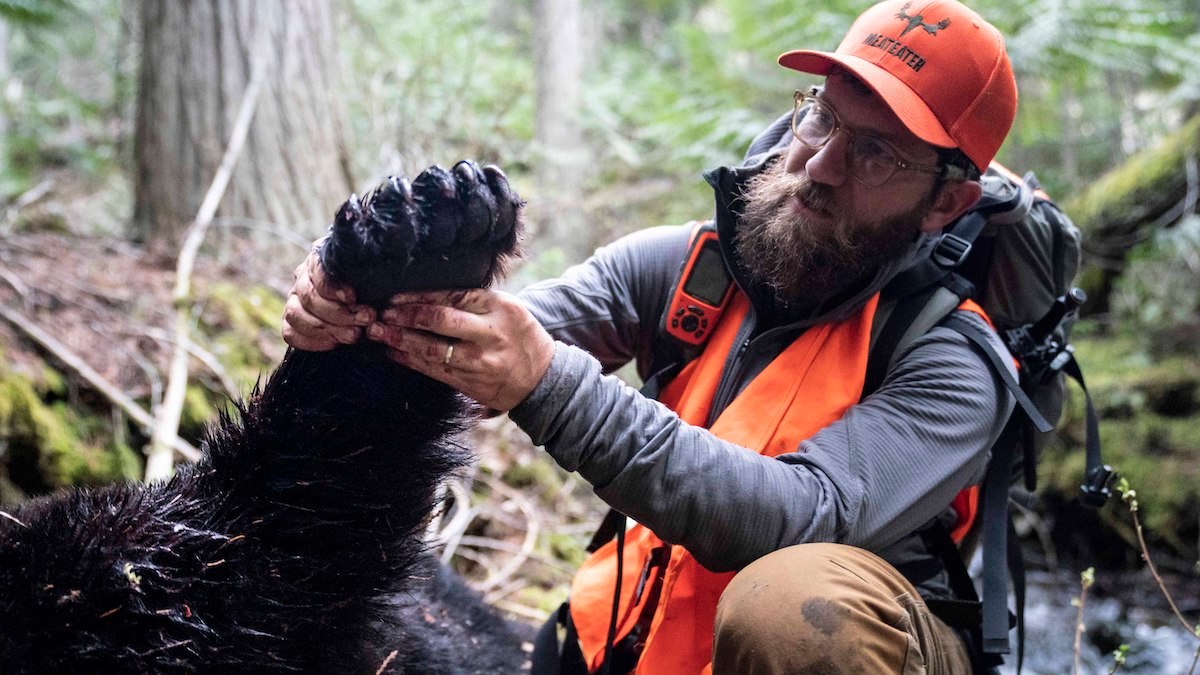
On October 27, Missouri wrapped up its first-ever regulated black bear hunt. But while this new hunting opportunity was celebrated by conservationists and Missourian wildlife officials, it also generated loud opposition and dissent among anti-hunting groups amplified by the mainstream media.
The regulatory framework that guided the Missouri hunt is one of the more conservative approaches to bear management in the country. It barred the use of bait and dogs, required meat recovery, and spread the 40-bear maximum harvest over three distinct management zones. Even with such a minimal quota, only 12 bears were harvested over the 10-day season.
“We knew going into this that hunter success rates would be low,” Laura Conlee, Missouri Department of Conservation furbearer and bear biologist, told MeatEater. “Bear hunting in general is a very challenging activity, and we have a low-density population that is widely distributed.”
Without the aid of bait or hounds, Missouri’s bear hunters were relegated to methods like spot-and-stalk hunting or long, continuous sits in tree stands over known forage like acorns and berries. MeatEater’s Clay Newcomb has labelled this difficult type of bear hunting “the sheep hunt of the South.”
But this successful hunting season signals the sustainable return of an iconic species to the Missouri landscape. Before logging and unregulated take caused their decline, black bears were a plentiful resource and a vital commodity—not just the Show-Me State, but across the entire American frontier.
It was the promise of black bears, among other things, that drew Daniel Boone to Missouri. Lewis and Clark utilized the resource as they journeyed through the state on the front leg of their legendary Western odyssey, stockpiling bear grease and stacking up smoked hams in the hulls of their pirogues.
While the animal’s return in huntable numbers to this historic range is cause for celebration for hunters and wildlife biologists, it’s igniting controversy and opposition among groups that want black bears to remain off-limits, unhunted and unmanaged, into the foreseeable future.
When news of the season broke in mid-October, it garnered a fair amount of negative attention from the mainstream media.
Newsweek and NPR threw around the term “trophy hunt” while reporting on the historic new season, relying heavily on the perspectives of anti-hunting groups like the Humane Society of the United States and the Center for Biological Diversity.
According to these groups, Missouri’s new bear season amounted to killing a rare species that’s still struggling to regain a foothold in the state’s ecological web. Their use of the term "trophy hunter" is part of a broader playbook that seeks to malign bear hunting as a trophy-driven sport where bears are killed with impunity for their heads and hides while their meat is thrown away or left in the field.
Most hunters would consider that unfair, but it is a winning strategy. Scientific research studies have shown that the American public is far more apt to disapprove of hunting when it’s detached from sustenance and food acquisition. Black bears, in particular, tend to register higher on an emotional scale than deer or turkeys. That’s why animal rights groups are often able to create anti-hunting sentiment that thwarts effective management of the species.
This tactic has been successfully employed in New Jersey, where Gov. Phil Murphy banned bear hunting by fiat against the express wishes of the New Jersey Fish and Game Council, despite the fact that the Garden State is home to one of the densest populations of black bears in North America. And the Humane Society of the United States, the same organization that is driving much of the opposition to Missouri’s new bear hunt, came dangerously close to getting black bear hunting banned in California back in January of 2021.
According to Lucas Bond, news services coordinator for the Missouri Department of Conservation, the narrative about Missouri’s bear season that’s being perpetuated by the Humane Society and others isn’t rooted in reality.
“This was not at all a trophy hunt,” Bond told MeatEater. “We talked to every one of the 12 hunters who harvested a bear. Every one of them was humble and ecstatic. It was the first time in their lives they’d harvested a bear, and they all had plans to eat the meat.”
Bond went on to say that he thought that some members of the news media intentionally misrepresented the hunt.
“Some media outlets took advantage of it and tried to make it bigger than what it is,” he said. “They tried to spin it as a trophy hunt, but in reality it was a very conservative harvest that was strictly geared for management purposes. We were happy with the results and look forward to another successful season next year.”
Even though the hunt wasn’t as fruitful as it could have been—only 30% of the harvest quota was filled—it was a capstone on decades of conservation success for the species.
Black bears have slowly expanded their range from Arkansas, where they were re-introduced in 1958, joining a handful of remnant bears in the Missouri Ozarks. Wildlife biologists now estimate the Missouri black bear population to be approximately 800 individuals strong, growing at a pace of 9% annually.
Conlee said that the population is at its densest in the southwestern part of the state, which is where nine of the 12 bears were harvested in this inaugural season. But the numbers are growing and expanding into areas where bears haven’t been in a century or more, like the St. Louis suburbs.
In other words, Missouri’s first regulated black bear hunt shouldn’t cause any concern for the species’ short- or long-term health and well-being.
“Here in Missouri,we have a growing and expanding black bear population,” Conlee said. “At its current growth rate, we’d expect the population to double in about a decade.”






Conversation